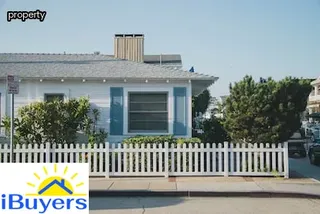It is not always easy to make the decision to sell your home in order to pay off debt. It can be a difficult and stressful process, but there can be some benefits in doing so.
In many cases, selling your house is the only way to become debt-free while still maintaining some financial security. Selling your home can help you get out of debt quickly, allowing you to start fresh without any lingering debts or payments.
Moreover, it can provide a substantial amount of money that can help pay off large amounts of debt at once, making it easier to manage than small monthly payments over time. On the other hand, there are also some drawbacks when selling your home for such reasons.
Not only will you have to find a new place to live and potentially deal with moving costs, but you may also have to take a loss on the sale of your home if it has decreased in value since you purchased it. Ultimately, understanding why selling your house might be necessary when paying off debt should involve weighing the pros and cons carefully before making any decisions.

Selling your home is a major decision, and it's important to weigh the pros and cons when deciding if it's the right choice for you. On the positive side, selling your primary residence may provide a one-time infusion of cash to help pay off debt.
Additionally, if you own more house than you need, it can free up funds to invest in other areas. However, before taking this drastic step, there are several things to consider.
Depending on market conditions, selling your home could be difficult and time consuming. You may also face transaction costs such as appraisal fees, closing costs and real estate agent commissions which could diminish the proceeds of the sale.
Furthermore, if the current mortgage balance exceeds the sale price of your home, you will be responsible for paying off any remaining balance after closing. Ultimately, selling your house to pay off debt should only be done after carefully considering all aspects of this decision so that you can make an informed choice that best fits your individual needs.
Deciding to sell your home to pay off debt is an important financial risk that should not be taken lightly. Before taking action, it's essential to weigh the pros and cons of the situation in order to ensure that the decision is the right one.
Selling a house can provide a substantial lump sum of money, allowing you to reduce or eliminate your debt quickly. On the other hand, it could lead to unexpected costs and a decrease in long-term wealth if proper considerations are not taken.
If you decide to move forward with selling your home, make sure you are aware of all potential risks and research past trends in your area's real estate market so that you can understand what kind of return on investment you may get for selling. Additionally, consider the intangible elements such as finding a new place to live or dealing with moving expenses.
All in all, by weighing both sides of this difficult financial decision, you can make sure that whatever course of action you take will be beneficial for your long-term financial wellbeing.

When it comes to helping friends and family through difficult financial times, one of the best gifts we can give is financial hope. Selling one’s house to pay off debt can be a difficult decision, but with careful consideration of both the pros and cons, it may be the most beneficial move for an individual or family struggling to get out of debt.
Weighing all of the options, from refinancing to taking on a second job, can help determine if selling a house is truly the right path. Even with a less-than-ideal market, there are still ways to make sure that selling a home yields positive results and provides meaningful relief from debt.
With thoughtful planning and research, selling can be an effective way to achieve financial freedom while providing much needed hope and security for individuals and families who were previously stuck in a cycle of debt.
Selling your home is a major decision and should not be taken lightly. Before you make this decision, it’s important to weigh the pros and cons of selling your house to pay off debt.
On the one hand, selling your home can provide immediate relief from overwhelming debt by enabling you to pay off the debt immediately and free up some extra cash flow. On the other hand, selling your home could leave you without a place to live and potentially unable to afford a new home in the future.
Additionally, there are costs associated with selling that must be taken into account such as real estate fees and closing costs. It’s also important to consider potential tax implications depending on your situation.
Before making this big decision, make sure to carefully analyze all of these factors before deciding whether or not it is beneficial for you to sell your house for debt relief.

Selling your home to pay off debt can be a tempting option, as it offers the potential for a fresh start and some much needed breathing room. However, it is important to take a step back and consider the long-term implications of such an action before making any decisions.
Selling your home should not be taken lightly and there are certain situations where it is simply not in your best interest to do so. For example, if you have very little equity in your home or if the market value of your house has decreased significantly since you purchased it, then selling would likely not be the best option.
Additionally, if you live in an area with high property taxes, selling may leave you unable to afford rent costs elsewhere and could also lead to more financial struggles down the line. Lastly, if you are planning on buying another house soon after selling, you need to consider whether or not such an endeavor is even feasible given your current financial situation.
Ultimately, each situation is different and requires careful consideration before making a decision that could have lasting consequences.
When selling your home to pay off debt, there are certain strategies you can use to make sure you maximize the amount of money saved. First and foremost, it is important to do your research and compare offers from multiple buyers.
This will help ensure you are getting the best possible value for your home. Additionally, consider negotiating with potential buyers in order to increase the sale price.
You may also want to look into using a real estate agent or broker who can help find qualified buyers and handle paperwork associated with the sale. Lastly, it is important to take into account any closing costs that may be associated with the sale of your home in order to determine how much money you will actually be able to save on debt payments.
By taking these measures into account when selling your home, you can rest assured knowing that you are making the most out of this financial decision.

Selling your house to pay off debt can be a tempting financial solution, but it is important to recognize the potential pitfalls and identify the temptations that could lead to getting into further debt after selling. Debt can stem from taking out a loan for renovations or repairs on the home, using the money from the sale of the home as a down payment on another property, or assuming other debts such as credit card balances.
Additionally, if these new debts are not managed carefully and paid off in a timely manner, they can quickly spiral out of control. While selling your house may seem like an easy way to solve immediate debt issues, it is important to weigh all of the pros and cons before making any decisions.
By understanding the temptations that could lead to increased debt after selling one's home, individuals can make informed decisions that help maintain long-term financial stability.
One key step you can take now to avoid future debt struggles is to create a budget and stick to it. Establishing a budget will help you understand exactly where your money is going, allowing you to make better financial decisions in the future.
To help stay on track with your budget, consider using an app or online tool that will remind you of your goals and monitor spending. Additionally, prioritize paying off high-interest debt as soon as possible by allocating more money towards those payments each month.
Doing this will reduce the amount of interest paid over time and help pay down the debt faster. Furthermore, consider selling assets such as stocks or other investments to pay off any outstanding debt if needed.
While it may be hard to part with certain possessions, it could be worth it in the long run if it means avoiding a high interest rate debt that would cost more than the sale in the end.

Selling a home is a major decision, and it's only natural to feel stress when considering selling your house to pay off debt. After weighing the pros and cons, you may decide that this course of action is the best for your financial future.
However, managing stress during the process can be difficult. Taking time for self-care is key to keeping emotions in check during this stressful period.
Make sure to get plenty of rest, eat nutritious meals, and take regular breaks from thinking about the sale. If needed, reach out to friends or family members for emotional support or talk to a professional counselor if you need help dealing with feelings of anxiety or depression associated with this process.
Additionally, make sure to stay organized while navigating paperwork and legal documents surrounding the sale of your home. Streamline the process by using online filing systems or hiring an attorney who specializes in real estate transactions if needed.
Selling a house can be an overwhelming experience but taking care of yourself and staying organized will help ensure a successful outcome.
When it comes to tackling debt, there are a variety of methods for weighing the pros and cons. One strategy that may be considered is selling your house to pay off debt; however, it's essential to take into account your unique situation before making a final decision.
Before you decide on this option, consider the potential implications such as the amount of equity in your home, any associated tax consequences, and the impact on your credit score. Additionally, if you’re unable to find suitable housing at an affordable price after selling the property, that could put further strain on your budget.
It's also important to look into other possible solutions such as refinancing or consolidation loans which may offer more attractive terms than traditional lenders. Taking the time to explore all available options can help you make an informed decision that best fits your needs.

When it comes to tackling debt, there are a variety of ways to do so. While traditional methods such as budgeting, cutting expenses, and making payments on time are important, there may be times when a more non-traditional approach is necessary.
Selling one's house to pay off debts can seem like an extreme measure, but in some cases it can be the most effective way to quickly resolve financial issues. Before taking this step, however, it is important to consider all the pros and cons of such an action.
On one hand, selling a home can provide a large sum of money that can be used to pay down debt quickly and help improve credit scores over time. On the other hand, this decision could also mean having to find another place to live and potentially relocating family members or pets.
It is crucial that individuals weigh these factors carefully before deciding if this course of action is right for them and their financial situation.
Paying off debt can be a stressful and seemingly never-ending endeavor. One way to quickly cover your existing debts is to sell your house and use the proceeds to pay them off.
Before committing to this option, it is important to weigh the pros and cons of taking such a drastic step. On the plus side, selling your home can provide you with a large sum of money that could eradicate debt in one fell swoop.
On the other hand, you may have difficulty finding another place to live or may have less financial stability as a result of not having an asset like a home. It is important to consider other financing methods available for covering current debts before resorting to selling your house.
These methods include refinancing or consolidating existing loans, using credit cards or personal loans, or seeking help from non-profit organizations that specialize in providing assistance with debt management. Each of these options has its own advantages and drawbacks depending on individual circumstances, so it is worth exploring each possibility thoroughly before making an informed decision about how best to cover current debts.

When faced with financial struggles, it is important to explore all options available to you in order to stay afloat. One creative way to generate additional revenue streams is to consider selling your house in order to pay off debt.
Weighing the pros and cons of this decision is an important step before taking any action. Selling your house can provide a major source of income, but it also comes with potential drawbacks such as having to find a new place to live or having difficulty finding a buyer in the current market.
It’s essential to consider all factors including your family’s needs, potential moving costs and the amount of time you might have available for house hunting before making any decisions about selling your home. Additionally, there are other creative ways to generate additional revenue streams during financial struggles such as starting a side business or taking on freelance work.
It’s important to research all your options carefully and make sure that whatever choice you make is the best one for you and your family.
Making more money while lowering expenses is an important part of weighing the pros and cons of selling your house to pay off debt. There are several strategies that can help you improve your financial situation.
To begin, budgeting is key to tracking your spending and allocating funds towards paying down debt. You should review your income and expenses to identify areas in which you can cut back or reduce costs.
Consider asking for a raise at work or taking on a side job to increase your income. Additionally, sell items online or at a garage sale if you have excess belongings that no longer serve any purpose.
You may also want to look into refinancing your mortgage loan to get a lower interest rate, as well as potentially consolidating other debts into one payment. Finally, make sure to create an emergency fund in case of unexpected expenses so you don’t incur more debt.
With careful planning, these strategies can help you gain financial stability while making the decision whether or not to sell your house in order to pay off debt.
Is it better to sell your house to pay off debt? It's a decision that many homeowners must grapple with, and one that should be weighed carefully. With rising debt levels and the cost of living increasing, selling your house to pay off debt can seem like an attractive solution.
However, there are both pros and cons associated with this strategy. On the positive side, selling your home can provide you with a lump sum of cash that can be used to pay off large debts quickly.
This could lead to a significant reduction in interest payments and free up funds for other purposes. On the other hand, it may be difficult to find a buyer willing to purchase your home at market value or close to it, as well as dealing with the costs associated with selling.
Additionally, you may need to rent somewhere else while searching for another property or until you have saved enough money for a down payment on a new home. It is important that before deciding if selling your house is the right choice for you, consider all aspects of this decision thoroughly and consult financial advisors if necessary.

Yes, you can sell your house to pay off debt and buy another house. However, it's important to weigh the pros and cons of such a decision before making any final decisions.
On the plus side, selling your home could give you much needed financial relief from excessive debt. It could also allow you to buy a new home at a more reasonable price than if you were to use other methods for paying off your debt.
On the downside, selling a home incurs certain costs, including realtor fees and closing costs. Additionally, depending on where you live and market conditions, it could take longer than expected to find a buyer for your home which delays the payment of your debts.
Ultimately, whether or not it is beneficial to sell your house in order to pay off debt depends on individual circumstances and should be discussed with an experienced financial advisor before making any firm decisions.
When you sell your house to pay off debt, it's important to understand what happens to the debt you are paying off. Generally, when a home is sold and the proceeds are used to pay off debt, the debt is considered settled.
Depending on the amount of money available after a sale and any other financial obligations, some or all of the debt may be repaid in full. In some cases, creditors may agree to accept less than the total balance due on a debt if paying back the full amount is not possible.
If a portion of a debt is paid off with funds from a home sale, it's important to get written confirmation that the creditor has accepted partial payment of the debt in exchange for releasing any collateral that was associated with it. Before selling your home to pay off debt, consider consulting with an experienced financial advisor or credit counselor who can help you weigh out all potential options and consequences carefully before making a decision.
When faced with the decision of whether or not to sell everything you own in order to pay off debt, it's important to weigh the pros and cons. On one hand, selling your house and other possessions can provide a quick source of income that can be used to pay off debt rapidly.
This could give you a sense of freedom from financial burdens and help you start fresh. On the other hand, getting out of debt this way means giving up any equity you have in your home or possessions and may leave you without a place to live or any resources for future security.
In addition, there may be tax implications associated with selling your assets that could further complicate the process. Ultimately, deciding whether or not to sell everything you own is a highly personal decision that should be made with care and caution after considering all available options.